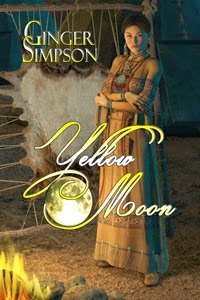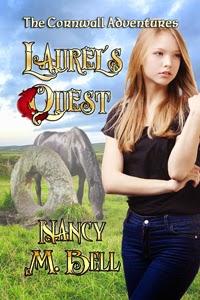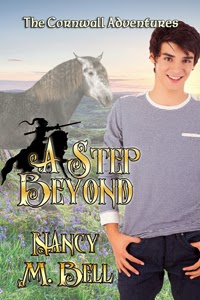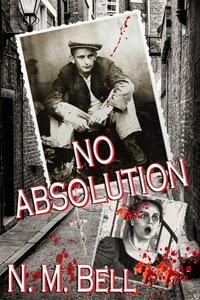 |
| Purchase Raven's Lament from Amazon |
Yeah okay some of this title you read before, most likely back in the weed induced seventies but Robert M. Pirsig did make a fortune off that book, Zen and The Art of Motorcycle Maintenance.
So I swore I'd never twitter, eat toast upside down while
making a phone call or do a blog. So here I am. Well the digital era happened
and if it wasn't for ebooks, I'd still be sending out letters to publishers.
Current total before my first book was accepted 398 rejections. So if I hear one
more person saying, oh I'm one of the lucky ones, got accepted on my first send
out. GRRR, she'll be wearing my glass of red wine down the front of her dress,
don't care if it's Donna Karan or Walmart. Speaking of Walmart, ever seen any
of those Walmartians? Wow, what kind of bad Rice Krispies did these people eat
to think that looks good in public. Wouldn't dress my 1991 Honda Civic in those
clothes and I buried that thirty years ago.
Yes,
I've had many short stories accepted over the years or short-listed, can check
a few out a readwave.com. My first novel I entered into anything was Raven's
Lament, back in Jan/2000. Yup, virtually pre-internet. I entered it into the
Chapters novel contest. I needed 5,000 words, and had 8,000 written and thought
what the heck, give it a go, wasn't working at the time and if pushed could
crank it out over a month. Hey, people crash write novels over a long weekend
here in Canada. Yes, cold, long winters and nothing else to do. Hence the
popularity of Tim Horton's, you should see the lineups at those places. So I go
to a job interview Jan 10th for a automotive technicians job and get two
phonecalls that afternoon. One to say I've got the job, start tomorrow, full
time and second to say I've made the semi-finals of the contest. Need to
submit, by the 31st of the month at least a 50,000 word manuscript.
After
banging my head against the wall several times and jumping up and down in glee,
I told my former wife (could be what lead to the end, don't know) leave me
alone for the next 21 days, I need to pound out a novel. At the time I met a
lady in one of my writing groups, who was an editor, she was bored and living
in Toronto, and I was in Chilliwack, British Columbia. So, I'd send her emails
at night, read the edits the next morning and on the way to work, scribble
deliriously. Didn't have a car at the time, rode public transit, although I've
been known to bomb down highway one and pencil thoughts as they came to me.
Yes, distracted driving, I know, fine me now officer.
I
did manage to make the dead line, didn't get any further, but it was by far one
of the most exciting writing experiences of my life. On the edge of the muse.
I've always told writers you need to get into the flow. It was something I
learned back in a creative writing course I took in high school. I remember the
first day of class and the teacher plunking a writing book on each desk and
saying "this is your manual for this course." I naively stuck up my
hand and said, "yes, but its blank. Nothing but blank lined pages."
"Your job is to fill it." My first thought was, should have joined
the typing class instead, easier credits and way more females in the group. We
had to sit for the first half of the class and write. I remember the first few
days about the girl in front of me, how boring the white walls were and by the
end of the class pounding several pages and taking the writing pad home and
pounding out several more.
Okay I've exposed verbally too much now and need to save
something for next months blog, titled: How Do I get the monkey out of the tree
and drinking lattes Instead.
OH, I forgot, Automotive tip. The reason the dashlights are
called idiot lights are this. The oil light on most cars, are fed off of
mainline oil pressure, so when the pressure has dropped below a set value,
the light comes on. By this time you usually have about one or two cups of oil
in the oilpan instead of five liters (or pints) depending on where you live.
The damage is already done about two weeks before this, so check the oil regularily
or give me a call at work and I'll gladly give you a quote on a new engine.
And as for Robert's Book, he sold 5 million copies to 121
publishers and I got bored after about page 50 or so. So there's no telling
what people will buy these days, hey ask what's her name with the several
colors of overcast sky. Man, why didn't I think of that book?
PS. Next month I'll give you a few wine making tips, I've
run out of time here and Jude is giving me the evil eye, I'm well past the
allotted two paragraphs. Wait until next month. Okay I change my mind; blogging
is kinda cool, like verbose writing without the pencil.
Sincerely
Frank Talaber
http://about.me/ftalaber
https://www.facebook.com/ftalaber/author
http://www.readwave.com/frank.talaber/stories/
https://www.goodreads.com/author/show/8092362.Frank_Talaber
https://www.authonomy.com/user/34247e0c-bcc7-4cfc-8d5a-41ab1b79532e/
http://bcbooklook.com/about/whos-who/
http://www.cyclamensandswords.com/frank_talaber_aug_2012.php
https://www.facebook.com/pages/Frank-Talaber/805296946204873



.jpg)





































.jpg)


